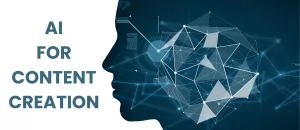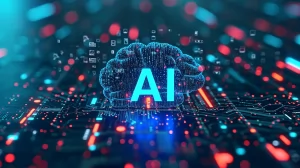Artificial Intelligence in SEO
Artificial Intelligence (AI) has revolutionized many industries, and content creation and SEO are no exceptions. From automating repetitive tasks to enhancing the quality of content, AI is rapidly changing how businesses approach their digital marketing strategies. As AI technology continues to evolve, its impact on content creation and SEO is becoming increasingly significant. This blog explores how AI is reshaping these fields and what it means for marketers and businesses aiming to stay ahead in the digital landscape.
The Rise of AI in Content Creation
AI-powered tools and platforms have made content creation more efficient and accessible. Here’s how AI is transforming the content creation process:
1. Automated Content Generation:
AI tools like GPT-4 and other natural language processing (NLP) models can generate high-quality content with minimal human input. These tools can create articles, blog posts, product descriptions, and even social media updates, saving time and resources for businesses.
2. Enhanced Content Personalization:
AI enables marketers to create personalized content tailored to individual user preferences. By analyzing user behavior, preferences, and past interactions, AI can help generate content that resonates with specific audience segments, leading to higher engagement rates.
3. Content Optimization:
AI tools like Grammarly and Hemingway Editor assist in optimizing content for readability, grammar, and tone. These tools can suggest improvements in real-time, ensuring that the content is clear, concise, and engaging.
4. Content Ideation and Research:
Artificial intelligence tools can analyze vast amounts of data to identify trending topics, keywords, and content gaps. This helps content creators generate ideas that are both relevant and timely, ensuring that their content stays ahead of the competition.
5. Visual Content Creation:
AI is not limited to text-based content; it is also making strides in visual content creation. Tools like DALL·E and other AI-driven platforms can create images, videos, and infographics based on simple prompts, enhancing the visual appeal of content.
The Impact of AI on SEO
SEO is also being shaped by artificial intelligence. Here’s how AI is influencing SEO strategies:
1. Search Engine Algorithms:
Search engines like Google are increasingly using AI and machine learning algorithms to deliver more accurate and relevant search results. AI-powered algorithms can better understand user intent, context, and semantics, making it essential for SEO strategies to focus on user experience and content quality.
2. Keyword Research and Optimization:
AI tools can analyze large datasets to identify the most effective keywords and phrases for SEO. These tools can predict keyword trends, assess competition, and provide recommendations for optimizing content based on search intent and user behavior.
3. Voice Search Optimization:
With the rise of AI-powered voice assistants like Siri, Alexa, and Google Assistant, optimizing content for voice search has become crucial. AI helps in understanding natural language queries and long-tail keywords, enabling marketers to create content that is voice-search friendly.
4. Predictive Analytics:
AI-driven predictive analytics tools can forecast future trends in search behavior, helping businesses to anticipate changes and adjust their SEO strategies accordingly. This proactive approach can give businesses a competitive edge by allowing them to stay ahead of the curve.
5. Content Quality and Relevance:
AI tools like Clear scope and Market Muse analyze content to ensure it meets the expectations of search engines and users. These tools assess content for comprehensiveness, relevance, and keyword optimization, helping to improve search rankings.
6. User Experience and Engagement:
AI can track and analyze user behavior on websites, providing insights into how users interact with content. This data helps marketers optimize site structure, navigation, and content layout to enhance user experience, which is a critical factor in SEO.
Challenges and Considerations
Although artificial intelligence provides a variety of advantages, it also introduces certain difficulties.
1. Quality Control:
AI-generated content may lack the creativity, nuance, and emotional appeal that human writers bring to the table. It’s essential to review and edit AI-generated content to ensure it aligns with brand voice and quality standards.
2. Over-Reliance on Automation:
While AI can automate many tasks, over-reliance on automation may lead to generic content that fails to engage users. Striking a balance between AI-driven automation and human creativity is key to producing compelling content.
3. Ethical Concerns:
The use of AI in content creation raises ethical questions around originality, plagiarism, and the potential for misinformation. It’s crucial to use AI responsibly and ensure that content remains authentic and trustworthy.
4. Constant Evolution:
AI technology is continuously evolving, and what works today may not be as effective tomorrow. Staying updated with the latest AI developments and adapting strategies accordingly is essential for maintaining a competitive edge.
The Future of AI in Content Creation and SEO
The future of AI in content creation and SEO looks promising, with advancements in AI technology expected to further enhance the capabilities of marketers. Here are some potential developments:
1. Advanced Personalization:
AI will likely enable even more sophisticated levels of content personalization, allowing businesses to deliver hyper-targeted content to individual users based on real-time data and predictive analytics.
2. AI-Generated Multimedia Content:
As AI continues to advance, we can expect to see more AI-generated multimedia content, including videos, podcasts, and interactive experiences. This will provide marketers with new ways to engage audiences and enhance their content strategies.
3. AI-Driven SEO Strategies:
Future AI tools may offer fully automated SEO strategies, from content creation to optimization and analysis. These tools will likely become indispensable for businesses looking to stay competitive in the digital landscape.
4. Enhanced AI and Human Collaboration:
The collaboration between AI and human creativity will continue to evolve, with AI taking on more repetitive tasks and humans focusing on strategy, creativity, and innovation. This partnership will lead to more effective and efficient content marketing and SEO strategies.
Conclusion
AI is undeniably transforming the fields of content creation and SEO, offering numerous benefits while also presenting new challenges. By leveraging AI tools and technologies, businesses can streamline their content processes, enhance their SEO strategies, and ultimately achieve better results. However, it’s essential to strike a balance between automation and human creativity, ensuring that content remains engaging, authentic, and aligned with user intent. As AI continues to evolve, staying informed and adaptable will be key to thriving in this rapidly changing digital landscape.
